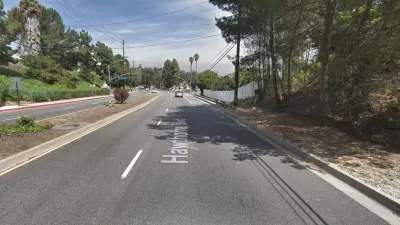The state of Washington is finding that more and more fatal car crashes involve drivers under the influence of THC. But legal limbo, lack of research, and spotty detection makes the question of what to do very hard to answer.
Amelia Havanec reports: "Among those involved in fatal car crashes in Washington, the amount of drivers under the influence of marijuana escalated dramatically between 2013 and 2014, according to a new report by the Washington Traffic Safety Commission (WTSC)." To be more specific, there "was a 48 percent increase in THC-influenced drivers involved in fatal crashes between 2013 to 2014."
Before jumping to conclusions about whether the escalation of pot smokers involved in car crashes, the study also offered an important caveat: "around half of the THC-positive drivers were also under the influence of alcohol, exceeding the state’s limit of a 0.08 blood alcohol content. Furthermore, the majority of the crashes took place in the first six months of the year, before recreational marijuana stores opened."
Havanec helpfully notes that federal prohibitions on the sale and use of the drug, along with a lack of science, make setting, and detecting, driving limits for the use of the marijuana difficult.
In a separate article for Governing, Sarah Beitenbach goes into more detail about the challenges of policing "high driving" in states that have legalized marijuana for recreational use. According to Beitenbach, "[a]t least 17 states, including Washington, have “per se” laws, which make it illegal to have certain levels of THC in one’s body while operating a vehicle, according to the National Conference of State Legislatures (NCSL). Under these laws, no additional evidence is required to prove a driver is impaired."
FULL STORY: Pot increasingly linked to fatal car crashes, state reports

Planetizen Federal Action Tracker
A weekly monitor of how Trump’s orders and actions are impacting planners and planning in America.

Congressman Proposes Bill to Rename DC Metro “Trump Train”
The Make Autorail Great Again Act would withhold federal funding to the system until the Washington Metropolitan Area Transit Authority (WMATA), rebrands as the Washington Metropolitan Authority for Greater Access (WMAGA).

DARTSpace Platform Streamlines Dallas TOD Application Process
The Dallas transit agency hopes a shorter permitting timeline will boost transit-oriented development around rail stations.

LA County Creating Action Plan to Tackle Extreme Heat
Los Angeles County is creating a Heat Action Plan to help communities stay safe during extreme heat, with steps like adding more shade, improving buildings, and supporting the neighborhoods most at risk.

Maryland Plans Quick-Build Complete Streets Projects
The state will use low-cost interventions to improve road safety in five Maryland counties.

Downtown Los Angeles Gears Up for Growth
A new report highlights Downtown L.A.’s ongoing revival through major housing projects, adaptive reuse, hospitality growth, and preparations for global events in the years ahead.
Urban Design for Planners 1: Software Tools
This six-course series explores essential urban design concepts using open source software and equips planners with the tools they need to participate fully in the urban design process.
Planning for Universal Design
Learn the tools for implementing Universal Design in planning regulations.
City of Charlotte
Municipality of Princeton
Roanoke Valley-Alleghany Regional Commission
City of Camden Redevelopment Agency
City of Astoria
Transportation Research & Education Center (TREC) at Portland State University
US High Speed Rail Association
City of Camden Redevelopment Agency
Municipality of Princeton (NJ)




























